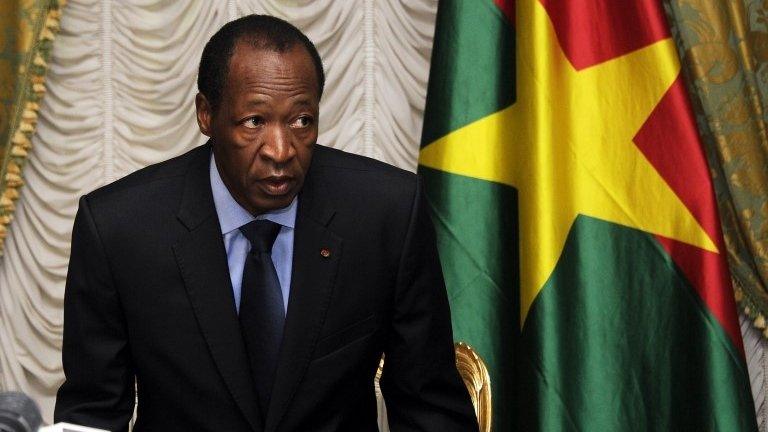What was behind the coup in Burkina Faso?
- Published
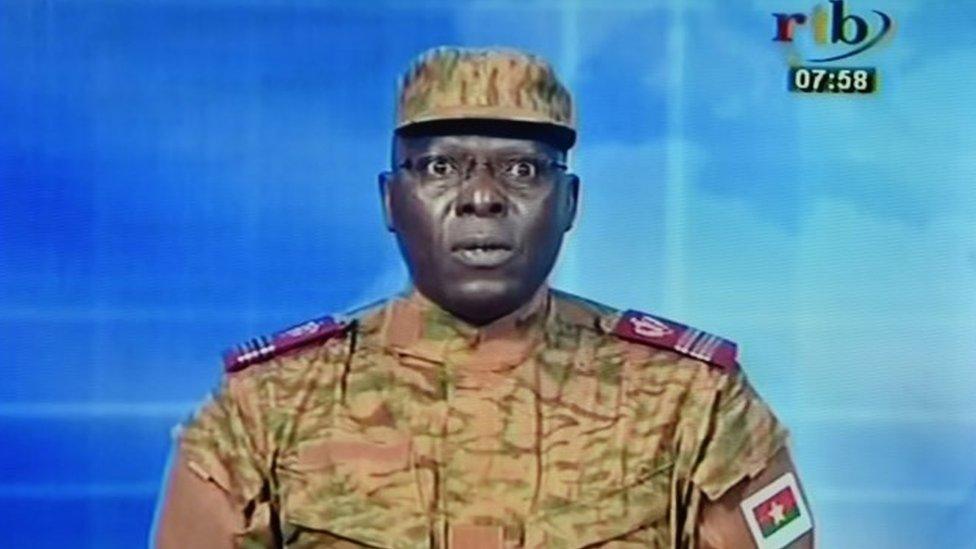
Lt-Col Mamadou Bamba announced the coup on national television on Thursday
The BBC's Lamine Konkobo looks at the issues behind the week-long coup in Burkina Faso, when members of the presidential guard overthrew the interim government.
Days after the coup ended, the reinstated interim government said it was disbanding the presidential guard.
A new president is due to be elected next month to replace long-serving ruler Blaise Compaore, who was ousted in a popular uprising last year.
Why was there a coup?
Members of the presidential guard (RSP), set up by President Compaore, said they were unhappy with the new electoral law banning candidates linked to last year's bid to extend the president's time in office. It was that attempt which triggered his overthrow in October 2014.
But what was really bothering the RSP was its future. Soldiers were worried that the election of a new president would spell the end of the unit.
What was the presidential guard?
The presidential guard was an elite unit of around 1,300 soldiers loyal to Mr Compaore.
He set it up to ensure his own protection in the wake of the 1987 killing of his predecessor, and close ally, Thomas Sankara during a coup which led to Mr Compaore taking over.
It was a well-trained and well-equipped group of soldiers who have often acted independently from the country's army, which is larger but less well armed.
Army chiefs distanced themselves from the presidential guard by asking the coup supporters to hand in their weapons to barracks in exchange for safety guarantees.
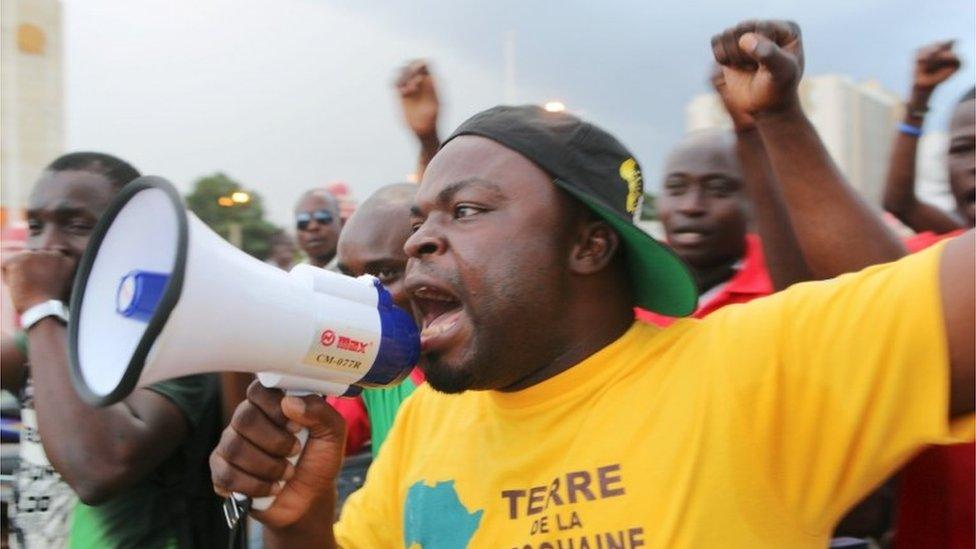
Protests broke out in Burkina Faso's capital, Ouagadougou, after the interim president and prime minister were arrested on Wednesday
Were people sympathetic to the cause of the presidential guard?
Most of the people who backed the overthrow of Mr Compaore were keen to see the presidential guard disbanded, but less so members of the CDP, the former ruling party.
They were concerned that they had been excluded from October's election because of their ties to the former president.
They argued that the election should have been an inclusive process and the electorate allowed to decide who was fit to be the next president.
One of the people banned from contesting the election was the coup leader's wife, Fatoumata Diallo Diendere who was an MP for CDP.
After handing back power, the leader of the coup, Gen Gilbert Diendere, admitted it had been "the biggest mistake".
"We knew the people were not in favour of it. That is why we have given up," he told local media.
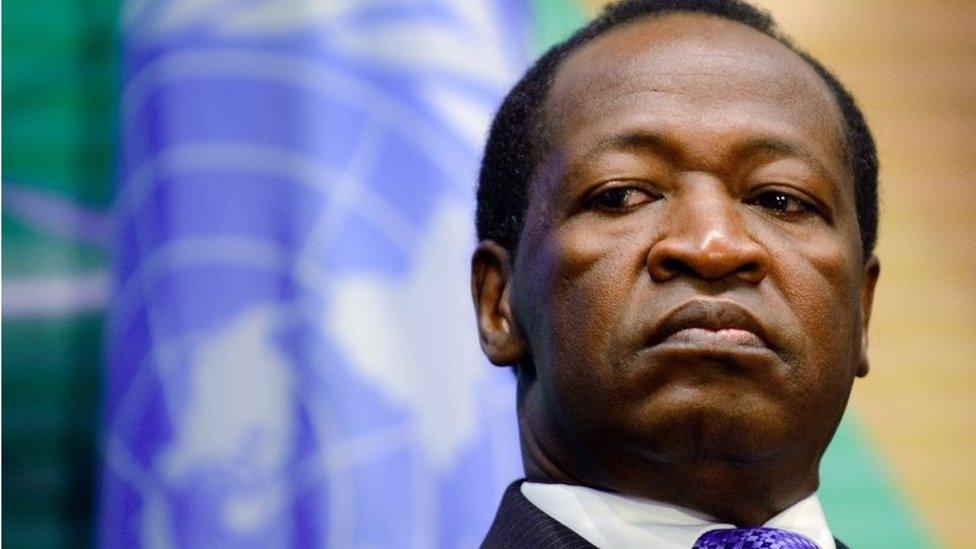
Blaise Compaore was president of Burkina Faso from 1987 to 2014
Does the former president still have influence in Burkina Faso?
There are some who thought that Mr Compaore, currently in exile in Ivory Coast, quietly backed the coup and with the presidential guard in power, it could in theory have paved the way for his return.
Ivory Coast's President Alassane Ouattara was supported by Mr Compaore in his effort to take power after a disputed election, and he is thought to have been unhappy about the transitional arrangements.
What is ordinary life like for people in Burkina Faso?
Life is hard for many in Burkina Faso, one of the world's poorest countries.
Many university graduates struggle to find work and often blame corruption for their difficulties.
They were hoping that the transition and a democratic election would lead to improvements, so the coup is a set-back for them.

Seven things about Burkina Faso:
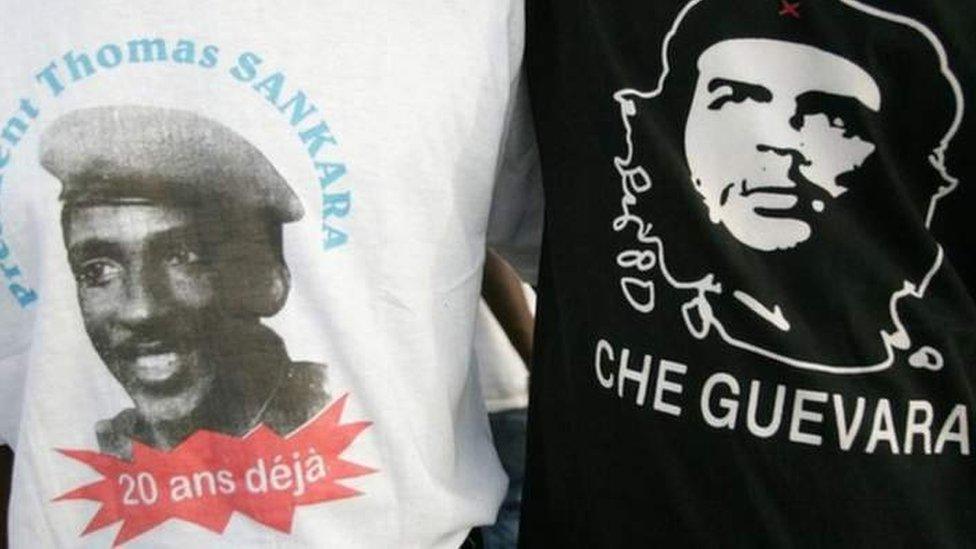
It is one of the world's poorest countries - its main export is cotton
A former French colony, it gained independence as Upper Volta in 1960
Capt Thomas Sankara seized power in 1983 and adopted radical left-wing policies - he is often referred to as "Africa's Che Guevara"
The anti-imperialist revolutionary renamed the country Burkina Faso, which translates as "land of honest men"
Mr Compaore took power in the coup that killed Mr Sankara, and ruled for 27 years, until he was ousted last year following street protests
People in Burkina Faso, known as Burkinabes, love riding motor scooters
It is renowned for its pan-African film festival, Fespaco, held every two years in Ouagadougou

- Published17 September 2015
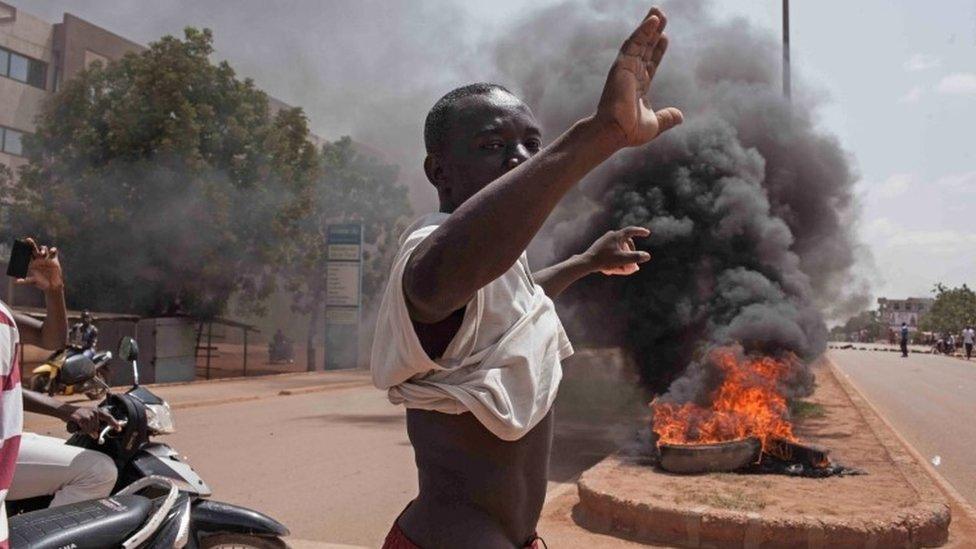
- Published31 October 2014
